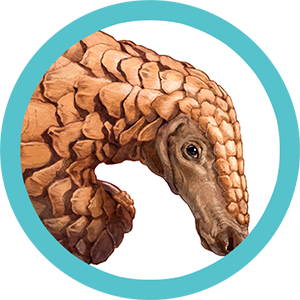You Can Make a Difference in the Life of a Wild Thing!
There are many ways to help the endangered animals you've met in our books. You can learn more about these fascinating creatures and why they're endangered below. But more importantly, there are lots of ways YOU can help them, just look at each animal's profile below to discover how! These aren't the only Wild Things that need our help. You can go to the World Wildlife Fund to find out how you can help different types of wildlife all over the world.
Sloths need your help!
|
Unfortunately, sloths are endangered for many reasons. Because of habitat loss and human development, oftentimes, sloths lose their natural corridors, forcing them to climb to the ground where they're at risk of being hit by vehicles and becoming targets for predators or poachers. Sloths are also at risk of electrocution as they attempt to cross from tree to tree using power lines. But one of the greatest threats to sloths is exploitation for selfies with humans. Sloth babies are taken from their mothers in the wild for photo opportunities with tourists. To help sloths, please click on the links, to find what works best for you.
|
Pangolins need your help!
|
Despite being protected under national and international laws, pangolins are the most illegally trafficked mammal on Earth. Over 200,000 pangolins are poached from the wild, not just for their scales but also their meat, which is considered a delicacy in some parts of the world. But there are ways you can help, too. Click on the links for more information.
|
Quokkas need your help!
|
As you learned in the book, when European settled moved into Western Australia, they introduced non-native predators like foxes for recreational hunting and cats for mousing. While quokkas have always had predators in the form of birds of prey, dingoes (Australian wild dogs), and snakes, these new predators became so numerous, they decimated the quokka population. Over time, the human population also grew and cleared out most of the quokka’s natural habitat, leaving them with less and less space to thrive. But, there are ways you can help our favorite smiley marsupials. Click on the links to find out how!
|


